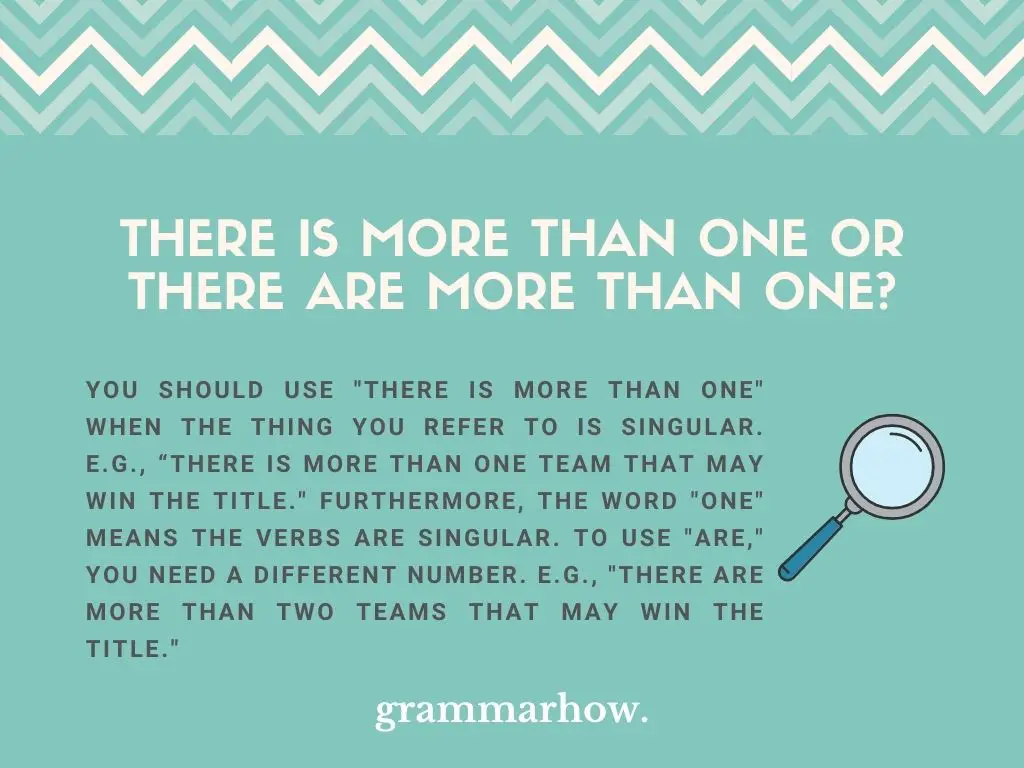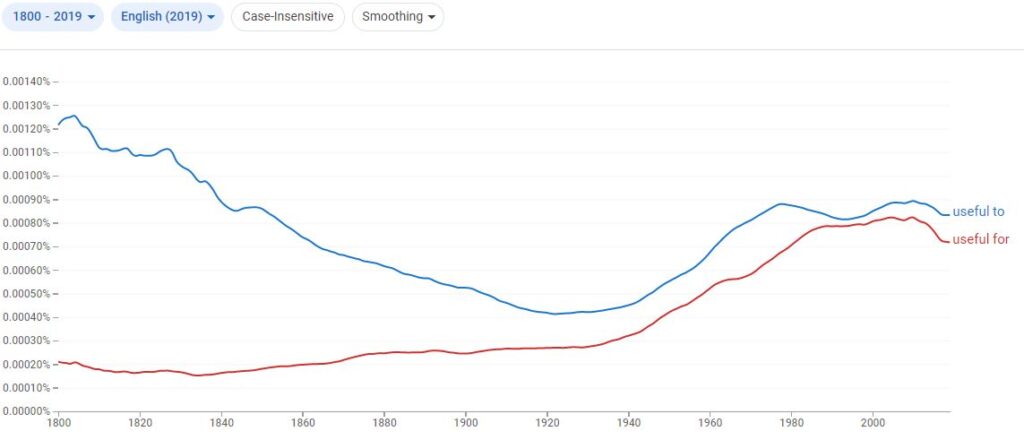Is something useful to you or for you? Is there even a difference between using one preposition or the other?
If these are the questions that haunt your waking moments, you’ve come to the right place! Read on to learn the difference, if there is one, between these phrases.
Useful To or Useful For – What’s the Difference?
Both “useful to” and “useful for” are grammatically correct and can often be used interchangeably. “Useful to” is better suited in a more specific case, i.e., “It was useful to me”. “Useful for” is used in more general terms, i.e., “It was useful for our research”.

According to the Google Ngram Viewer, “useful to” has always been used more frequently than “useful for”, and this remains the case today. However, in recent times, the gap between the two has greatly reduced.

It’s therefore clear to us that either phrase is suitable. There are no precise rules regarding when one should be used instead of the other. It has been suggested, however, that “useful to” is used more often when the usefulness of something is directed specifically to one person:
- It was very useful to have that information, thank you.
- He was very useful to my evil plans.
“Useful for” may be better suited in more general statements:
- These algorithms are useful for getting people out of their normal online echo chambers.
- Two ovens can be useful for households with more than four members.
Useful To
The Cambridge Dictionary defines “useful” as “effective; helping you to do or achieve something”.
“Useful to” can be used to suggest that something or someone is useful for one person in particular. It is, therefore, quite specific.
Let’s look at some example sentences that illustrate this point:
- Lectures aren’t very useful to me since I’m not an auditory learner.
- I find it useful to have multiple sources on the same issue in my writing.
- I don’t know if this collection will be useful to you, but it’s worth having a look anyway.
As you can see, these sentences suggest that lectures, sources, or a collection of something may be effective or helpful for a singular person.
Technically, each sentence would still be correct if we switched the preposition “to” with “for”, but the use of “to” for more specific purposes is simply a linguistic convention.
Useful For
“Useful for” can be used for more general statements, like when something is useful for a group, purpose, or state of affairs.
Let’s see how “useful for” might be used in some example sentences:
- This equation is very useful for plotting our points graphically.
- It might be useful for you to keep the drinks fridge in the garage, as there’s limited space in our kitchen.
- Artificial intelligence can be useful for me and my team in the copywriting department.
Once again, these sentences would still be correct if “useful for” was replaced with “useful to”. It is simply a convention to use “useful for” for more general statements.
Conclusion
“Useful to” and “useful for” typically mean the same thing and can be used interchangeably.
“Useful to” is typically used for more specific statements that speak to the usefulness of something to a specific person.
“Useful for” is often used in more general statements that speak to the use of something for a particular purpose.
This is simply a linguistic convention, however, and it would not be incorrect to use one or the other.

Martin holds a Master’s degree in Finance and International Business. He has six years of experience in professional communication with clients, executives, and colleagues. Furthermore, he has teaching experience from Aarhus University. Martin has been featured as an expert in communication and teaching on Forbes and Shopify. Read more about Martin here.
